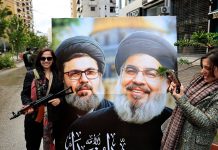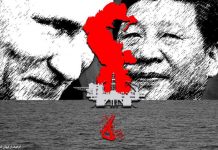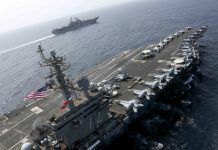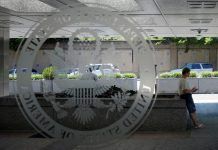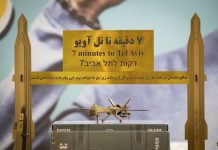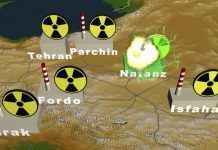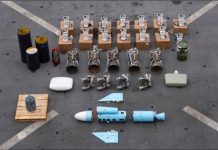
Discreet at first, Türkiye is now open in its backing for Syria’s new ruler, Ahmad al-Sharaa, the Islamist rebel whose forces toppled the Iran-backed Bashar al-Assad. Indeed, Assad’s fall is affecting ties between the Islamic Republic of Iran and Türkiye, and will in time reveal its negative effects in several areas including how much tax and dues Iranian truckers must pay while transiting Türkiye.
Both countries have long had a strategic position in the region. Iran is an “energy corridor,” and Türkiye, a crucial bridge linking Asia and central Europe. Their relations have evolved and declined in terms of trust and quality since Iran’s 1979 revolution, with Türkiye taking advantage of Iran’s diplomatic and economic isolation in the region and beyond.
Before the revolution, under a modernizing monarchy that enjoyed the West’s apparent confidence, Iran was in many ways in control of the region’s land, air and sea routes including the Persian Gulf and the Oman Sea. Its dominance extended as far as the Red Sea, thanks to its friendship with Egypt under President Anwar al-Sadat.
Its regional influence was backed by powerful, generously financed armed forces, whose sharp degradation began amid the tumult of an Islamic revolution that changed Iran’s entire ideological course. Over the past 40 years Iranian decisions, and those of Türkiye, have precisely changed this balance of power in Türkiye’s favor.
The Zangezur corridor
A particular point of tensions between the neighbors is the planned Zangezur corridor, which would directly link Türkiye’s friend, the Republic of Azerbaijan, with the Nakhchivan region riding roughshod over Armenian territory in between. Iran has very furtively backed the Armenians in their territorial tug-of-war with Azerbaijan in recent years, and the corridor is not unrelated to the fate of Iranian truck drivers. What’s in a land corridor?
First, it threatens north-south routes. Iranian territory is currently the land route linking the Republic of Azerbaijan with Nakhchivan and Türkiye, given Armenia’s hostility. The corridor would immediately threaten its key position for transportations between Azerbaijan, Türkiye and the western Caucasus, allowing Azerbaijan and Türkiye to dispense with the Iran route altogether.
The Zangezur corridor is a symbol of close and fruitful collaborations between Türkiye and Azerbaijan.
Second, it might threaten Iran’s north-western frontier. The corridor’s proximity to Iran’s border is a potential threat as it would boost Turkish and NATO influence nearby and perhaps troop presence on Iran’s frontier.
Third, it would impede Iran-Armenia communications. The corridor could obstruct or weaken Iran’s access to Armenia, which is itself a potential westward and northward link for Iran.
Finally, it could increase regional rivalries and political tensions. The Zangezur corridor is a symbol of close and fruitful collaborations between Türkiye and Azerbaijan, and a reminder of the Islamic Republic’s weakness in forging diplomatic and strategic bonds. The two states would use the corridor to further boost their influence across the Caucasus and exclude the Islamic Republic from territories that were once, in the not-so-distant past, part of the Iranian state. Tehran‘s regime is aware of this, which has merely heightened existing tensions between itself and its two neighbors.
A sign of weakness
Another sign of Tehran’s weakness is its inability to block the corridor in spite of its stated opposition, in part for Iran’s dependence on Türkiye to partly bypass international sanctions on itself. Any more tensions with Türkiye, and it may find an even tighter noose around its pariah’s neck.
Corridors have always been important, but under the last Shah, Iran had diplomatic clout and standing. Before 1979, neighbors would tread carefully with it.
Now, the Arab states of the Persian Gulf enjoy challenging Iran — specifically over three disputed islands under Iran’s physical control and claimed by the United Arab Emirates. Such situations can only continue until the day Iran has a strong, properly representative government enjoying the confidence of Iranians and the international community.
Indeed, if the Islamic Republic were to carry on, every space and corridor on its frontier may become a flashpoint and a threat, and a recurring source of humiliation.



